Clinical Experience
The clinical experience is one of the most exciting times in the student journey as it allows you to gain hands-on experience with practicing clinicians in your home community. FNU’s clinical experience will provide an opportunity for you to evaluate and improve the practice/system, help you continue to develop expertise in an area of practice, and allow you to seek experiences to improve your skills to practice autonomously.
The Master of Science in Nursing (MSN) and Post-Graduate Certificate (PGC) clinical experience follows completion of your didactic coursework and a campus visit for Clinical Bound.
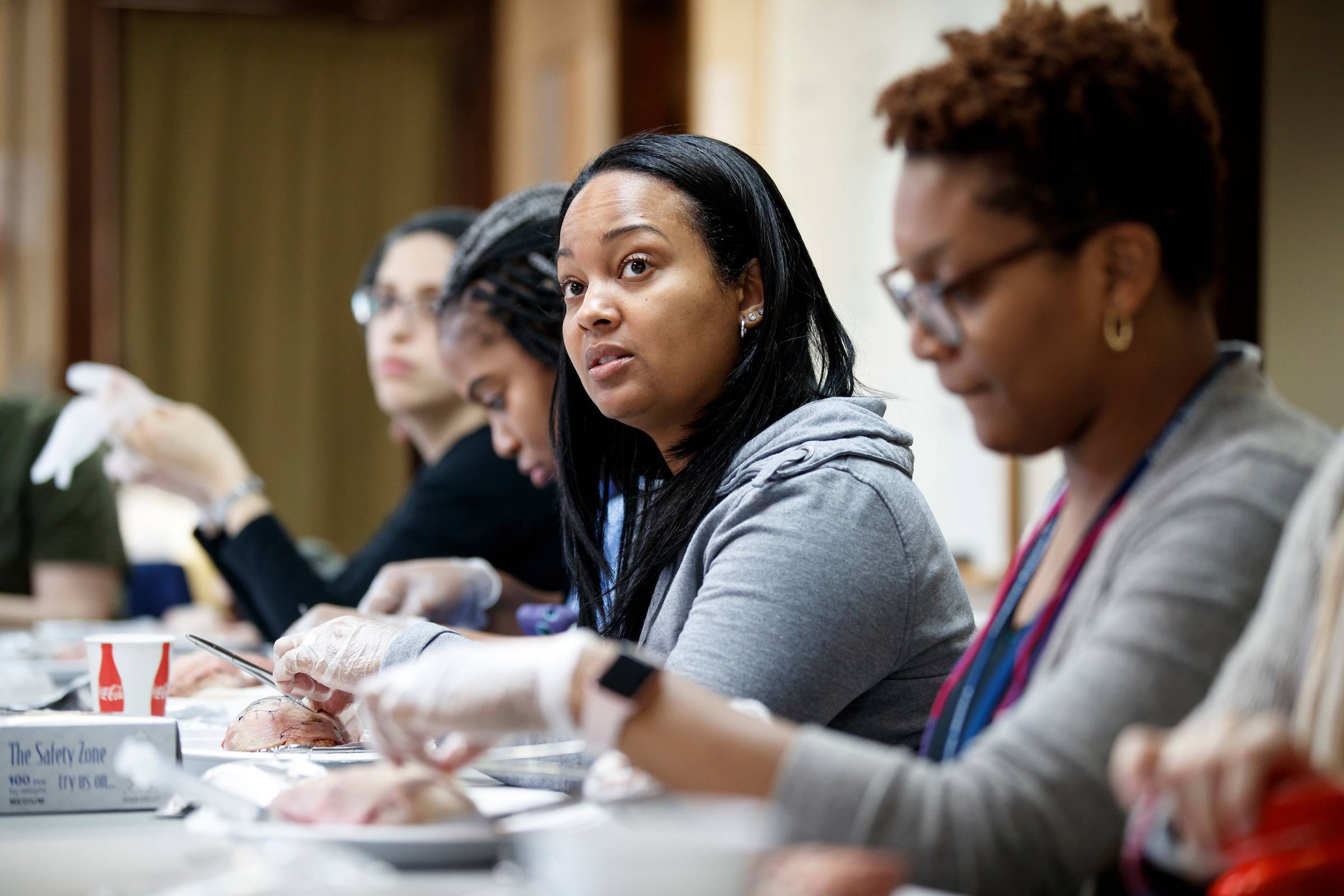
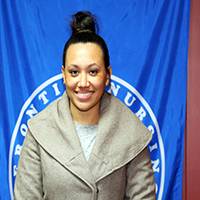
“The education, wisdom, and patience that she has shown and given to me is something I can never repay, but I would like her to know how thankful I am for her commitment to me.”
- FNU Student Amanda Hallman, MSN, CNM, Class 179 speaking about Dr. Tanya Baca
Degree Requirements
- MSN and PGC students will complete a minimum 750 clinical hours.
- DNP students will complete 500 clinical hours over 3 terms. Learn more about the DNP clinical experience.
- Click here to view the catalog for clinical hour requirements.
MSN and PGC students are encouraged to plan two to three 11-week terms in clinical and may work with multiple preceptors to achieve these hours. Required clinical experiences assist you in developing necessary clinical skills, and you may choose, or be required, to use more than one clinical site in order to receive a variety of clinical experiences.
Specialty Requirements - Required MSN and PGC Clinical Experiences
These requirements are subject to change. Students are required to follow the degree requirements as outlined in the FNU Catalog during their time of enrollment.
Click the specialty below to see requirements.
Maximum number of clinic/office hours per week: 32 (dependent upon call schedule)
Please meet with your RCF to discuss any proposed exceptions.
- 10 preconception care visits
- 30 new antepartum visits
- 140 return antepartum visits
- 40 labor management experiences
- 40 births
- 40 newborn assessments
- 20 breastfeeding support visits
- 40 postpartum visits (2 hours to 13 days)
- 30 postpartum visits (2 to 8 weeks)
- 40 common health problems
- 30 family planning visits
- 35 non-postpartum gynecologic visits
- 15 perimenopausal/postmenopausal visits
Maximum number of clinic/office hours per day: 10
Maximum number of clinic/office hours per week: 40
Please meet with your RCF to discuss any proposed exceptions.
- 10 Newborn exams
- 20 One month to 5 years well exams
- 20 One month to 5 years episodic exams
- 20 6 to 12 years well exams
- 20 6 to 12 years episodic exams
- 20 13 to 19 years well exams
- 20 13 to 19 years episodic exams
- 150 Adult episodic or wellness care
- 100 Chronic illness care (age <65)
- 50 Geriatric episodic or wellness care (age >65)
- 70 Geriatric chronic illness care (age >65)
- 20 Gynecologic visits to include wellness or episodic care (Must include 10 Speculum/bi-manual exams)
- 20 Antepartum visits (new or returning)
- 20 Mental health visits
- 10 Men’s health visits
Maximum number of clinic/office hours per day: 10
Maximum number of clinic/office hours per week: 40
Please meet with your RCF to discuss any proposed exceptions.
- 30 new antepartum visits
- 120 return antepartum visits
- 25 postpartum visits (< 8 wks)
- 300 gynecologic care visits
- 25 post/perimenopausal visits
- 100 primary care visits>
Maximum number of clinic/office hours per day: 10
Maximum number of clinic/office hours per week: 40
Please meet with your RCF to discuss any proposed exceptions.
- 50 Child or adolescent visits
- 50 Adult visits
- 20 Geriatric visits
- 20 Acute/Crisis Care Management
- 300 Medication Management
- 50 Substance Use Disorder Management
- 20 Psychotherapy sessions
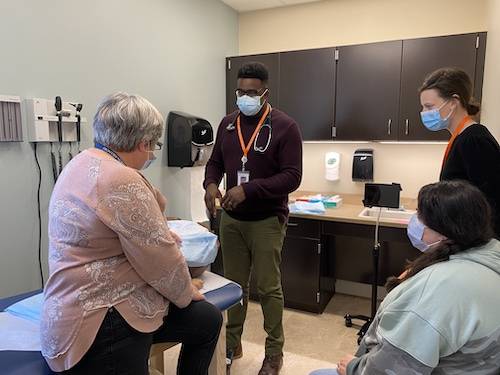
Clinical Bound
Clinical Bound is a skills-intensive experience for MSN and PGC students, held at FNU’s campus in Kentucky. This is an exciting time for you as a student because you have completed your didactic coursework and are validated as having acquired the skills necessary to begin a community-based clinical practicum. There is also time for informal communication between faculty and other students so that you can ask questions and prepare for your clinical experience. Students are assigned to a Clinical Bound session according to their individual plan of study.
Clinical Placement Services
At FNU, you are not alone in your search for clinical site placement. We are with you every step of the way. FNU offers clinical outreach and placement services and resources to assist students in identifying potential clinical sites. Our clinical outreach and placement team provides support to help you troubleshoot challenging situations and works with you one-on-one to navigate the overall clinical site search process. Not only do we offer a vast network of sites and preceptors nationwide, we also continually secure new ones. We work together with you to secure a clinical site and preceptor(s). Learn more about connecting with preceptors and clinical sites as well as the many support services available to you in this process.
Regional Clinical Faculty
Shortly after your enrollment in FNU, you will begin working with a Regional Clinical Faculty (RCF) to develop your clinical plan. The RCF is responsible for evaluating both the clinical site and preceptor to ensure you have a clinical plan that will meet your program requirements. During your clinical practicum, the RCF will provide guidance and support to you and your preceptor by participating in discussions, helping to resolve any issues regarding clinical sites, organizing regional gatherings and sharing clinical wisdom and experience. FNU students benefit greatly from having these advanced practice nurses as role models during the clinical experience.
Clinical Practicum
After attending Clinical Bound, students begin their clinical experience. You will provide nurse practitioner or nurse-midwifery services in your home community for 4-10 months under the guidance of one or more clinician preceptors.
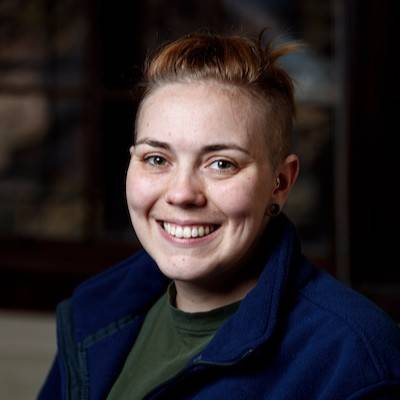
“I feel like I’m learning the hands-on portion. I’ve learned all the didactic work, and now I’m gaining the confidence to transition into the role of being a student nurse-midwife.”
- Chantee Redding, Nurse-Midwifery Student
Student Experience
FNU offers distance education programs where students complete coursework online and a clinical experience in their own communities. One to two campus immersion experiences are part of the FNU journey. Learn more about the overall student experience and FNU's campus immersion experiences here.
Campus Safety
For the Annual Security and Fire Safety Report and other safety information about our Campus Safety page.
FNU News
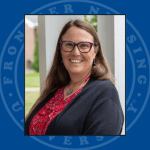
Faculty Spotlight: NRHA Names Associate Professor Dr. Joanne Keefe a 2026 Rural Health Fellow
At the heart of Frontier Nursing University is a talented community of students, graduates, faculty, staff, Couriers and preceptors. Spotlight blogs feature members of our FNU community that are … Read More...
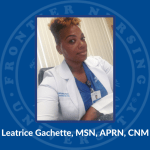
Featured Preceptor: Leatrice Gachette guides students in discovering their power
At the heart of Frontier Nursing University is a talented community of students, graduates, faculty, staff, Couriers and preceptors. Spotlight blogs feature members of our FNU community that are … Read More...

Exploring Job Options with a Doctor of Nursing Practice
As the highest degree in clinical nursing practice, a Doctor of Nursing Practice (DNP) can prepare healthcare professionals to not only provide excellent care, but also to shape how care is delivered. … Read More...
FNU News
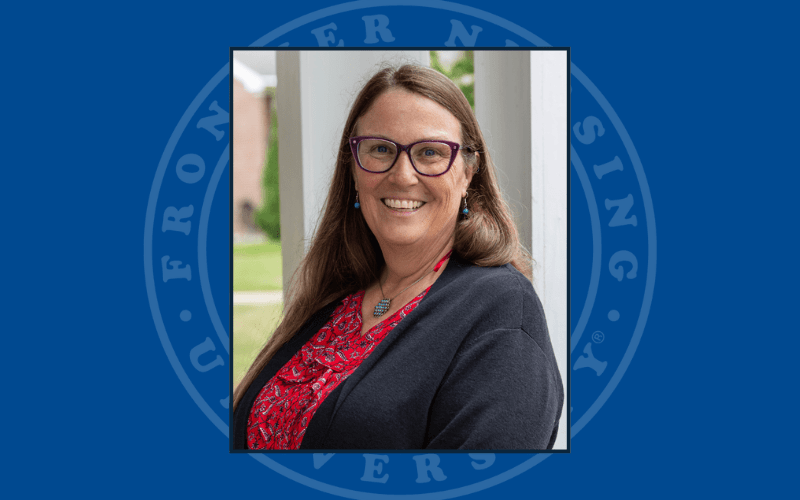
Faculty Spotlight: NRHA Names Associate Professor Dr. Joanne Keefe a 2026 Rural Health Fellow
At the heart of Frontier Nursing University is a … Read More...
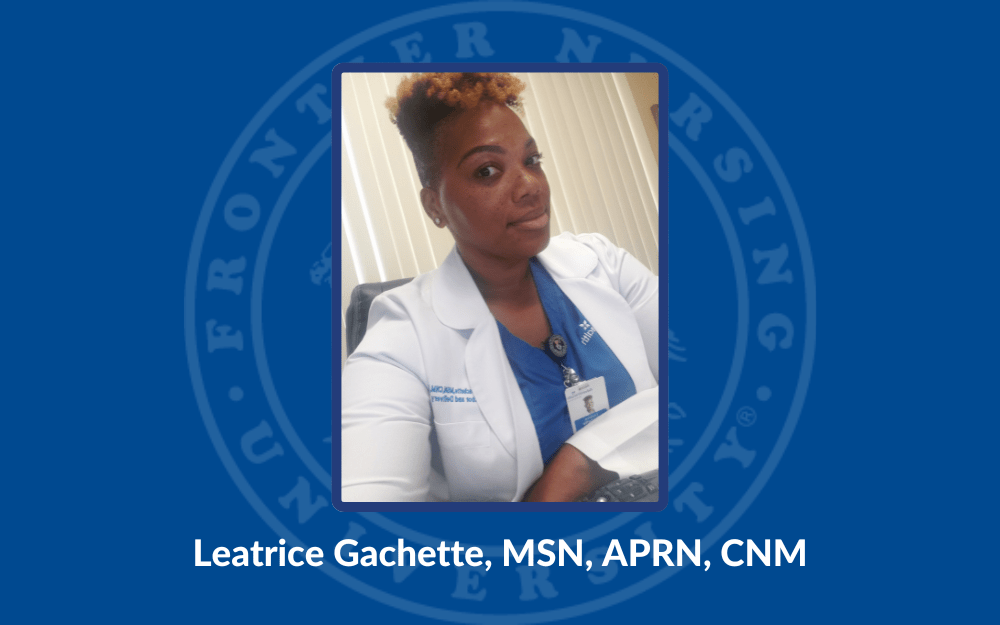
Featured Preceptor: Leatrice Gachette guides students in discovering their power
At the heart of Frontier Nursing University is a … Read More...
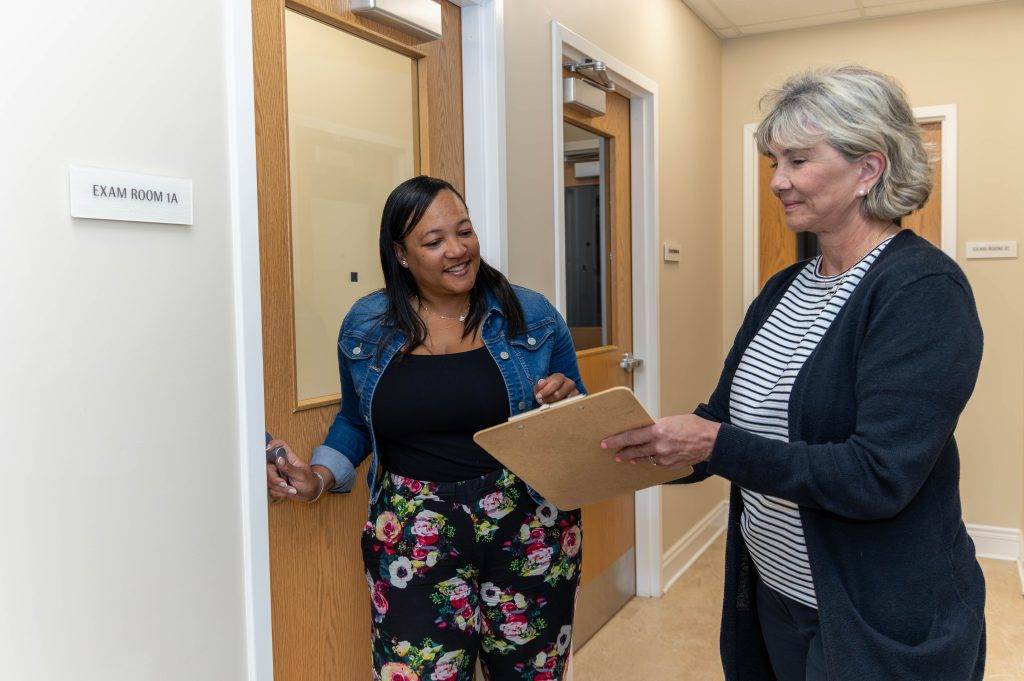
Exploring Job Options with a Doctor of Nursing Practice
As the highest degree in clinical nursing … Read More...
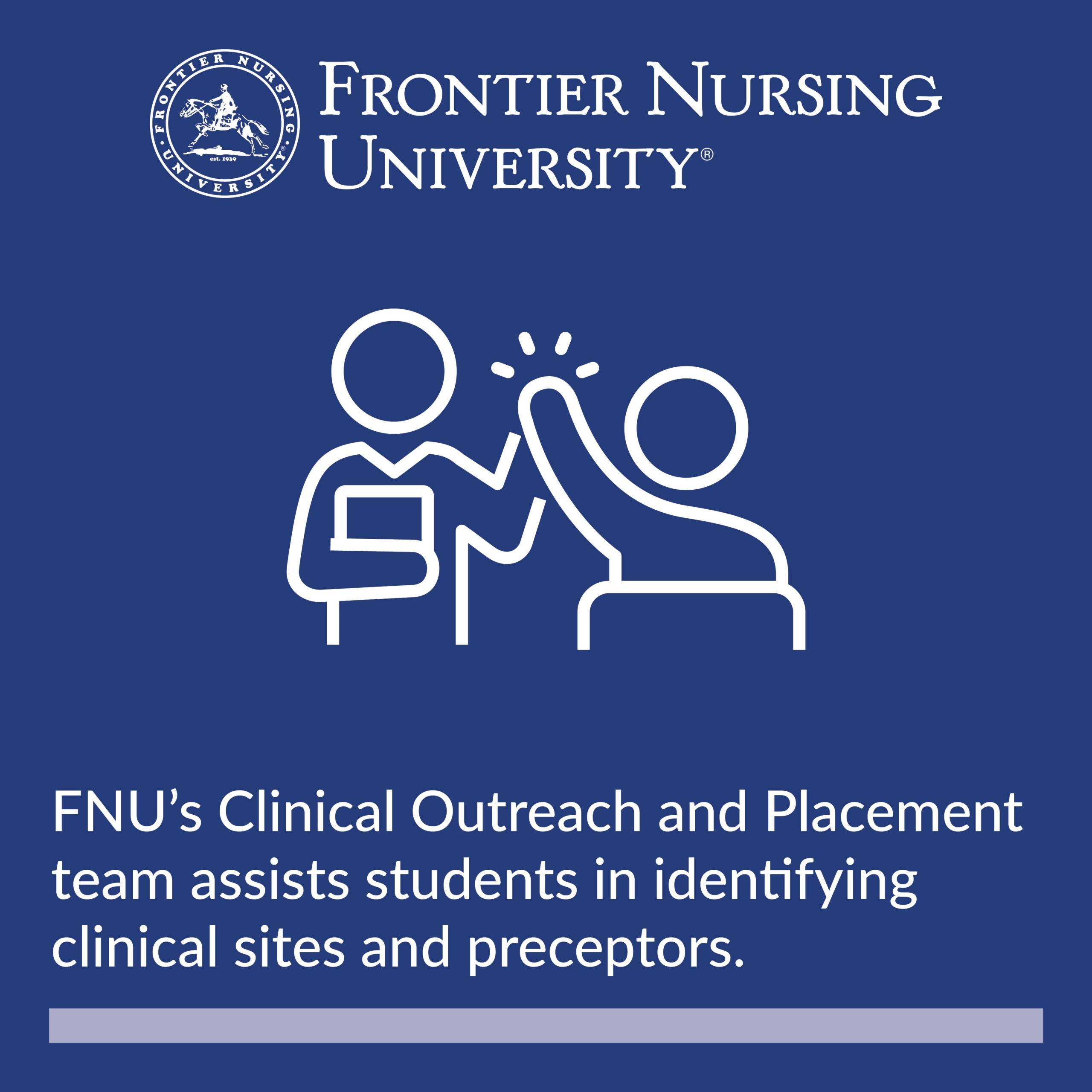



















 Carrie Belin is an experienced board-certified Family Nurse Practitioner and a graduate of the Johns Hopkins DNP program, Johns Hopkins Bloomberg School of Public Health, Georgetown University School of Nursing, and Johns Hopkins School of Nursing. She has also completed fellowships at Georgetown and the University of California Irvine.
Carrie Belin is an experienced board-certified Family Nurse Practitioner and a graduate of the Johns Hopkins DNP program, Johns Hopkins Bloomberg School of Public Health, Georgetown University School of Nursing, and Johns Hopkins School of Nursing. She has also completed fellowships at Georgetown and the University of California Irvine. Angie has been a full-scope midwife since 2009. She has experience in various birth settings including home, hospital, and birth centers. She is committed to integrating the midwifery model of care in the US. She completed her master’s degree in nurse-midwifery at Frontier Nursing University (FNU) and her Doctorate at Johns Hopkins University. She currently serves as the midwifery clinical faculty at FNU. Angie is motivated by the desire to improve the quality of healthcare and has led quality improvement projects on skin-to-skin implementation, labor induction, and improving transfer of care practices between hospital and community midwives. In 2017, she created a short film on skin-to-skin called
Angie has been a full-scope midwife since 2009. She has experience in various birth settings including home, hospital, and birth centers. She is committed to integrating the midwifery model of care in the US. She completed her master’s degree in nurse-midwifery at Frontier Nursing University (FNU) and her Doctorate at Johns Hopkins University. She currently serves as the midwifery clinical faculty at FNU. Angie is motivated by the desire to improve the quality of healthcare and has led quality improvement projects on skin-to-skin implementation, labor induction, and improving transfer of care practices between hospital and community midwives. In 2017, she created a short film on skin-to-skin called 










 Justin C. Daily, BSN, RN, has ten years of experience in nursing. At the start of his nursing career, Justin worked as a floor nurse on the oncology floor at St. Francis. He then spent two years as the Director of Nursing in a small rural Kansas hospital before returning to St. Francis and the oncology unit. He has been in his current position as the Chemo Nurse Educator for the past four years. He earned an Associate in Nurse from Hutchinson Community College and a Bachelor of Science in Nursing from Bethel College.
Justin C. Daily, BSN, RN, has ten years of experience in nursing. At the start of his nursing career, Justin worked as a floor nurse on the oncology floor at St. Francis. He then spent two years as the Director of Nursing in a small rural Kansas hospital before returning to St. Francis and the oncology unit. He has been in his current position as the Chemo Nurse Educator for the past four years. He earned an Associate in Nurse from Hutchinson Community College and a Bachelor of Science in Nursing from Bethel College. Brandy Jackson serves as the Director of Undergraduate Nursing Programs and Assistant Educator at Wichita State University and Co-Director of Access in Nursing. Brandy is a seasoned educator with over 15 years of experience. Before entering academia, Brandy served in Hospital-based leadership and Critical Care Staff nurse roles. Brandy is passionate about equity in nursing education with a focus on individuals with disabilities. Her current research interests include accommodations of nursing students with disabilities in clinical learning environments and breaking down barriers for historically unrepresented individuals to enter the nursing profession. Brandy is also actively engaged in Interprofessional Education development, creating IPE opportunities for faculty and students at Wichita State. Brandy is an active member of Wichita Women for Good and Soroptimist, with the goal to empower women and girls. Brandy is a TeamSTEPPS master trainer. She received the DASIY Award for Extraordinary Nursing Faculty in 2019 at Wichita State University.
Brandy Jackson serves as the Director of Undergraduate Nursing Programs and Assistant Educator at Wichita State University and Co-Director of Access in Nursing. Brandy is a seasoned educator with over 15 years of experience. Before entering academia, Brandy served in Hospital-based leadership and Critical Care Staff nurse roles. Brandy is passionate about equity in nursing education with a focus on individuals with disabilities. Her current research interests include accommodations of nursing students with disabilities in clinical learning environments and breaking down barriers for historically unrepresented individuals to enter the nursing profession. Brandy is also actively engaged in Interprofessional Education development, creating IPE opportunities for faculty and students at Wichita State. Brandy is an active member of Wichita Women for Good and Soroptimist, with the goal to empower women and girls. Brandy is a TeamSTEPPS master trainer. She received the DASIY Award for Extraordinary Nursing Faculty in 2019 at Wichita State University.  Dr. Sabrina Ali Jamal-Eddine is an Arab-disabled queer woman of color with a PhD in Nursing and an interdisciplinary certificate in Disability Ethics from the University of Illinois Chicago (UIC). Dr. Jamal-Eddine’s doctoral research explored spoken word poetry as a form of critical narrative pedagogy to educate nursing students about disability, ableism, and disability justice. Dr. Jamal-Eddine now serves as a Postdoctoral Research Associate in UIC’s Department of Disability and Human Development and serves on the Board of Directors of the National Organization of Nurses with Disabilities (NOND). During her doctoral program, Sabrina served as a Summer Fellow at a residential National Endowment of the Humanities (NEH) Summer Institute at Arizona State University (2023), a summer fellow at Andrew W. Mellon’s National Humanities Without Walls program at University of Michigan (2022), a Summer Research Fellow at UC Berkeley’s Othering & Belonging Institute (2021), and an Illinois Leadership Education in Neurodevelopmental and related Disabilities (LEND) trainee (2019-2020).
Dr. Sabrina Ali Jamal-Eddine is an Arab-disabled queer woman of color with a PhD in Nursing and an interdisciplinary certificate in Disability Ethics from the University of Illinois Chicago (UIC). Dr. Jamal-Eddine’s doctoral research explored spoken word poetry as a form of critical narrative pedagogy to educate nursing students about disability, ableism, and disability justice. Dr. Jamal-Eddine now serves as a Postdoctoral Research Associate in UIC’s Department of Disability and Human Development and serves on the Board of Directors of the National Organization of Nurses with Disabilities (NOND). During her doctoral program, Sabrina served as a Summer Fellow at a residential National Endowment of the Humanities (NEH) Summer Institute at Arizona State University (2023), a summer fellow at Andrew W. Mellon’s National Humanities Without Walls program at University of Michigan (2022), a Summer Research Fellow at UC Berkeley’s Othering & Belonging Institute (2021), and an Illinois Leadership Education in Neurodevelopmental and related Disabilities (LEND) trainee (2019-2020). Vanessa Cameron works for Vanderbilt University Medical Center in Nursing Education & Professional Development. She is also attending George Washington University and progressing towards a PhD in Nursing with an emphasis on ableism in nursing. After becoming disabled in April 2021, Vanessa’s worldview and perspective changed, and a recognition of the ableism present within healthcare and within the culture of nursing was apparent. She has been working since that time to provide educational foundations for nurses about disability and ableism, provide support for fellow disabled nursing colleagues, and advocate for the disabled community within healthcare settings to reduce disparities.
Vanessa Cameron works for Vanderbilt University Medical Center in Nursing Education & Professional Development. She is also attending George Washington University and progressing towards a PhD in Nursing with an emphasis on ableism in nursing. After becoming disabled in April 2021, Vanessa’s worldview and perspective changed, and a recognition of the ableism present within healthcare and within the culture of nursing was apparent. She has been working since that time to provide educational foundations for nurses about disability and ableism, provide support for fellow disabled nursing colleagues, and advocate for the disabled community within healthcare settings to reduce disparities. Dr. Lucinda Canty is a certified nurse-midwife, Associate Professor of Nursing, and Director of the Seedworks Health Equity in Nursing Program at the University of Massachusetts Amherst. She earned a bachelor’s degree in nursing from Columbia University, a master’s degree from Yale University, specializing in nurse-midwifery, and a PhD from the University of Connecticut. Dr. Canty has provided reproductive health care for over 29 years. Her research interests include the prevention of maternal mortality and severe maternal morbidity, reducing racial and ethnic health disparities in reproductive health, promoting diversity in nursing, and eliminating racism in nursing and midwifery.
Dr. Lucinda Canty is a certified nurse-midwife, Associate Professor of Nursing, and Director of the Seedworks Health Equity in Nursing Program at the University of Massachusetts Amherst. She earned a bachelor’s degree in nursing from Columbia University, a master’s degree from Yale University, specializing in nurse-midwifery, and a PhD from the University of Connecticut. Dr. Canty has provided reproductive health care for over 29 years. Her research interests include the prevention of maternal mortality and severe maternal morbidity, reducing racial and ethnic health disparities in reproductive health, promoting diversity in nursing, and eliminating racism in nursing and midwifery. Dr. Lisa Meeks is a distinguished scholar and leader whose unwavering commitment to inclusivity and excellence has significantly influenced the landscape of health professions education and accessibility. She is the founder and executive director of the DocsWithDisabilities Initiative and holds appointments as an Associate Professor in the Departments of Learning Health Sciences and Family Medicine at the University of Michigan.
Dr. Lisa Meeks is a distinguished scholar and leader whose unwavering commitment to inclusivity and excellence has significantly influenced the landscape of health professions education and accessibility. She is the founder and executive director of the DocsWithDisabilities Initiative and holds appointments as an Associate Professor in the Departments of Learning Health Sciences and Family Medicine at the University of Michigan. Dr. Nikia Grayson, DNP, MSN, MPH, MA, CNM, FNP-C, FACNM (she/her) is a trailblazing force in reproductive justice, blending her expertise as a public health activist, anthropologist, and family nurse-midwife to champion the rights and health of underserved communities. Graduating with distinction from Howard University, Nikia holds a bachelor’s degree in communications and a master’s degree in public health. Her academic journey also led her to the University of Memphis, where she earned a master’s in medical anthropology, and the University of Tennessee, where she achieved both a master’s in nursing and a doctorate in nursing practice. Complementing her extensive education, she completed a post-master’s certificate in midwifery at Frontier Nursing University.
Dr. Nikia Grayson, DNP, MSN, MPH, MA, CNM, FNP-C, FACNM (she/her) is a trailblazing force in reproductive justice, blending her expertise as a public health activist, anthropologist, and family nurse-midwife to champion the rights and health of underserved communities. Graduating with distinction from Howard University, Nikia holds a bachelor’s degree in communications and a master’s degree in public health. Her academic journey also led her to the University of Memphis, where she earned a master’s in medical anthropology, and the University of Tennessee, where she achieved both a master’s in nursing and a doctorate in nursing practice. Complementing her extensive education, she completed a post-master’s certificate in midwifery at Frontier Nursing University.









 Dr. Tia Brown McNair is the Vice President in the Office of Diversity, Equity, and Student Success and Executive Director for the Truth, Racial Healing, and Transformation (TRHT) Campus Centers at the American Association of Colleges and Universities (AAC&U) in Washington, DC. She oversees both funded projects and AAC&U’s continuing programs on equity, inclusive excellence, high-impact practices, and student success. McNair directs AAC&U’s Summer Institutes on High-Impact Practices and Student Success, and TRHT Campus Centers and serves as the project director for several AAC&U initiatives, including the development of a TRHT-focused campus climate toolkit. She is the lead author of From Equity Talk to Equity Walk: Expanding Practitioner Knowledge for Racial Justice in Higher Education (January 2020) and Becoming a Student-Ready College: A New Culture of Leadership for Student Success (July 2016 and August 2022 Second edition).
Dr. Tia Brown McNair is the Vice President in the Office of Diversity, Equity, and Student Success and Executive Director for the Truth, Racial Healing, and Transformation (TRHT) Campus Centers at the American Association of Colleges and Universities (AAC&U) in Washington, DC. She oversees both funded projects and AAC&U’s continuing programs on equity, inclusive excellence, high-impact practices, and student success. McNair directs AAC&U’s Summer Institutes on High-Impact Practices and Student Success, and TRHT Campus Centers and serves as the project director for several AAC&U initiatives, including the development of a TRHT-focused campus climate toolkit. She is the lead author of From Equity Talk to Equity Walk: Expanding Practitioner Knowledge for Racial Justice in Higher Education (January 2020) and Becoming a Student-Ready College: A New Culture of Leadership for Student Success (July 2016 and August 2022 Second edition).